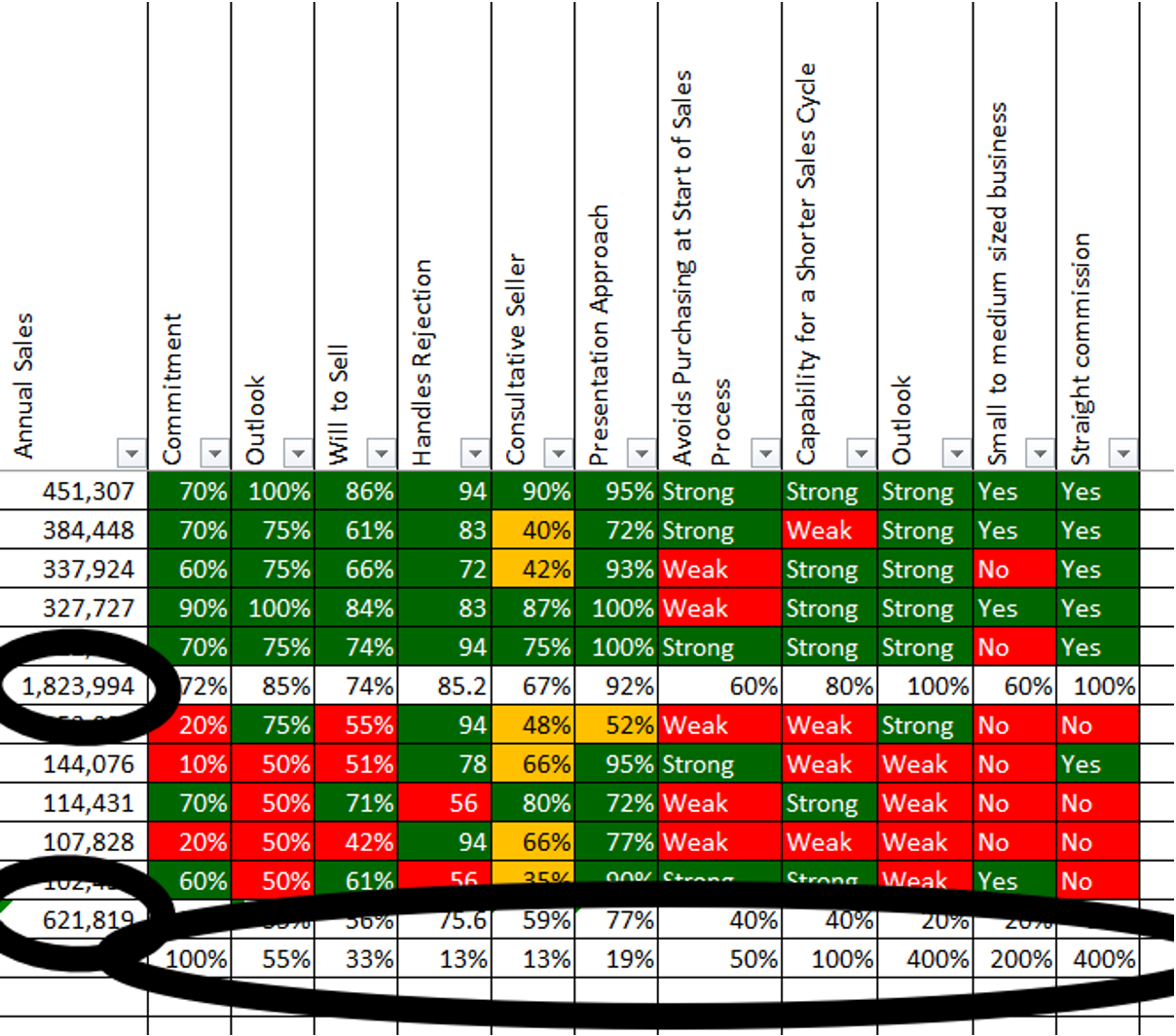Every organization has sales coaching and a sales method. What many companies either don’t know or unsure of is this: What direct impact does our sales coaching and sales method have on improving sales?
I can’t answer that question, but I can with 100% certainty make this statement: Your current coaching and methods are perfectly designed for the results you got last week, last quarter, and last year. Furthermore, they perfectly designed to get you your future results.
This is also what I know to be 100% true: If there is something about your sales outcomes that do not meet expectations, then something has to change. As the saying goes, you can’t keep doing the same things and expect different outcomes.
Often companies turn to sales training and management coaching to help with sales outcome problems. The positive impact you might be planning for as a result of any sales training will only happen if...
- You have the right people on the team today.
- You replace under-performers with those “that are highly likely to succeed’ (click this link for free download of Sales Candidate Assessment with 92% predictability)
- Your analysis of your sales systems and processes point you in a direction to implement and or fix required supporting sales systems and processes.
- You have the sales management DNA required to be successful at coaching, performance management, recruiting, motivation and upgrading.
The approach to improving sales skills (using SMART Goals and SMARTER Data) and coaching must help your people adjust several skills:
- Getting to Decision makers
- Using storytelling, metaphors, and analogies to make a point about how a solution might help a prospect.
- Outbound lead nurturing practices
- Finally, no excuses for lack of EFFORT
Having what we call a Sales Managed Environment® helps companies understand what needs to be changed and how to change and adjust to the moving landscape of pricing, availability, and competitors looking to buy market share. It’s tough to be successful at overcoming challenges and obstacles if you don’t have a built-in process that includes Performance Management, Skills Coaching, Hiring, and 1 on 1 deliberate coaching specifically to improve skills and change behavior.
Bottom line, you cannot possibly control all that is going on around you and your people. But you can control the habitus they live in, the quality of coaching support they get, and the availability of improving skills.









